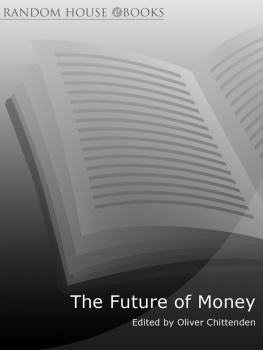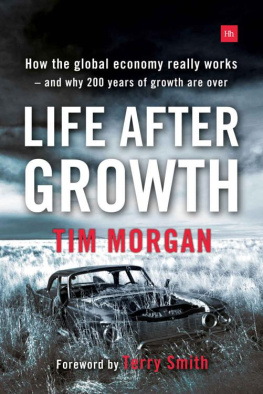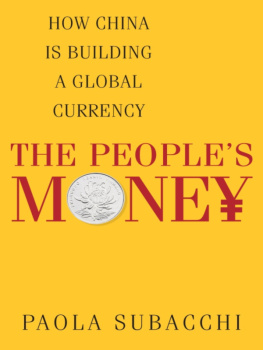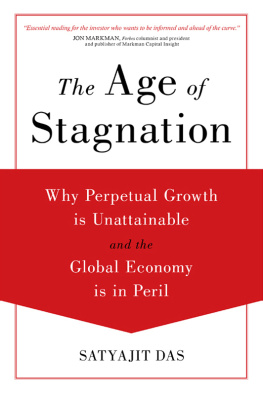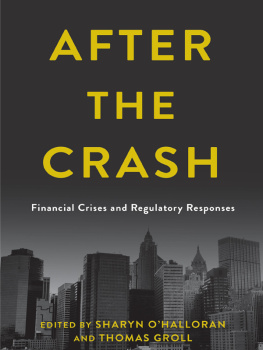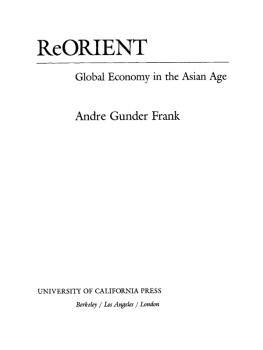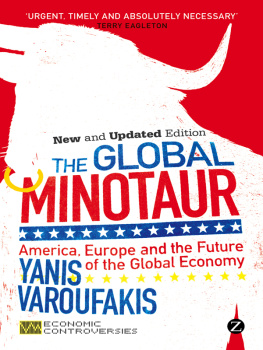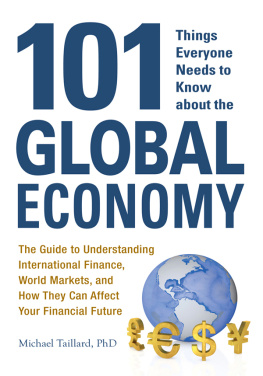The Future of Money
Edited by Oliver Chittenden
Introduction by Vince Cable

This eBook is copyright material and must not be copied, reproduced, transferred, distributed, leased, licensed or publicly performed or used in any way except as specifically permitted in writing by the publishers, as allowed under the terms and conditions under which it was purchased or as strictly permitted by applicable copyright law. Any unauthorised distribution or use of this text may be a direct infringement of the authors and publishers rights and those responsible may be liable in law accordingly.
Version 1.0
Epub ISBN 9780753523056
www.randomhouse.co.uk
Published in 2010 by Virgin Books, an imprint of Ebury Publishing, a Random House Group Company
2 4 6 8 10 9 7 5 3 1
Editors Note copyright Oliver Chittenden 2010
All entries copyright their named author except where specified
Oliver Chittenden has asserted his right under the Copyright, Designs and Patents Act 1988 to be identified as the author of this work
This book is sold subject to the condition that it shall not, by way of trade or otherwise, be lent, resold, hired out, or otherwise circulated without the publishers prior consent in any form of binding or cover other than that in which it is published and without a similar condition, including this condition, being imposed on the subsequent purchaser.
Feeble Critiques: Capitalisms Petty Detractors by Jagdish Bhagwati is based on a longer article printed in World Affairs Journal, vol. 172, issue 2, October 2009. Reprinted with permission of the Helen Dwight Reid Educational Foundation Published by Heldref Publications, 1319 Eighteenth St, NW, Washington, DC 20036-1802. 2009
David Blanchflowers contribution was taken from an open lecture given at the University of Stirling, 25 February 2009 David Blanchflower
Peter Costellos contribution taken from a speech given to the Australia House of Representatives, 26 May 2009 Peter Costello
Martin Feldsteins comments are drawn from Housing, Credit Markets and the Business Cycle, presented at the August 2007 Kansas City Federal Reserve Conference and published in the conference volume, Housing Finance and Monetary Policy (Kansas City Federal Reserve, 2008)
This terrifying moment is our one chance for a new world by Will Hutton, is based on an article as published in the Observer on 5 October 2008 Will Hutton/Guardian News & Media Ltd 2008
This was a crisis firmly minted in the London/New York banking system by Will Hutton was originally published in The Banker on 5 January 2009
Will the world listen now our bubble has burst by Norman Lamont, as published in the Sunday Telegraph on 21 September 2008 Telegraph Media Group Limited 2009
Mike Moores contributions reprinted with kind permission of John Wiley and Sons, Asia, from Saving Globalization: Why Globalization and Democracy Offer the Best Hope for Progress, Peace and Development 2009 by John Wiley and Sons (Asia) Pte. Ltd.
Nenad Paceks contribution GSA Global Success Advisors GMBH
Edmund Phelpss contributions are extracted from: a speech at the 7th Annual BIS Conference on Monetary Policy, Luzern, 26 June 2008 and a lecture at the Borsa Italiana, Milan 11 June 2008; from a speech given at the inauguration of the Phelps Chair, School of Law, University of Buenos Aires, 20 May 2008; and from a speech given at the New World, New Capitalism Symposium, Paris, 89 January 2009. All Edmund Phelps
The Spanish version of Hernando de Sotos contribution was previously published in the Mexican Magazine Nexos in May 2005.
Marvin Zoniss contribution previously published in Context magazine, August/September 2000 Marvin Zonis
For legal purposes the Copyright Acknowledgements constitute a continuation of this copyright page.
www.virginbooks.com www.rbooks.co.uk
Addresses for companies within The Random House Group Limited can be found at: www.randomhouse.co.uk/offices.htm
The Random House Group Limited Reg. No. 954009
A CIP catalogue record for this book is available from the British Library
Trade paperback ISBN 9780753522035
The Random House Group Limited supports The Forest Stewardship Council [FSC], the leading international forest certification organisation. All our titles that are printed on Greenpeace-approved FSC-certified paper carry the FSC logo. Our paper procurement policy can be found at www.rbooks.co.uk/environment

Typeset in Dante MT by Palimpsest Book Production Limited, Grangemouth, Stirlingshire
Printed and bound in Great Britain by CPI Mackays, Chatham ME5 8TD
CONTENTS
For Emily and our future

Through his work for The London Speaker Bureau, Oliver Chittenden has worked as an agent to many of the worlds most inspiring individuals for the past ten years. In 2008 he wrote the book, Inspire: Courageous People of Our Time, featuring many of the UKs most celebrated heroes.
Oliver lives between London and Montelimar in southern France.
EDITORS NOTE
The Future of Money brings together a unique and varied list of high-level contributors from within politics, business, finance and academia. The aim is to provide viewpoints across different areas of expertise and from different areas of the globe in order to explain the complexities of our worldwide economy at a time when the foundations of its existence came so close to collapse, and to suggest new ways to approach this truly global problem.
Contributors were given a choice of questions to answer, divided into three sections: past, present and future. Some contributors focused their essays solely on the impact of the global recession on their own nations while others looked at how it affects the world as a whole; some wrote essays especially for this book, while others drew on pertinent, even prescient speeches or articles that were remarkably relevant to the goals of The Future of Money.
Whether a recipient of the Noble Peace Prize, a senior economic adviser to presidents and prime ministers, a CEO of a multinational corporation or a professor of economics at an internationally respected institution, each contributor has given their outlook on the global financial crisis without any strict guidelines, allowing them to offer an unique insight from their particular perspective.
The essence of this book is consistent with the universal acknowledgement that the effects of the financial disaster filtered rapidly across the world, needing an equally rapid and concerted effort to avert more destruction. The future of our economy and how we reform it should be decided not only by bankers and economists but rather through dialogue among experts from a variety of backgrounds and cultures.
It is my hope that these fascinating essays gathered from around the globe go some way towards explaining how the credit crisis came about at such pace and with so little warning; where the global recession is now and what is being done in the short term to battle towards recovery; what lies ahead for the future of our global economy; and how it will affect us all.

